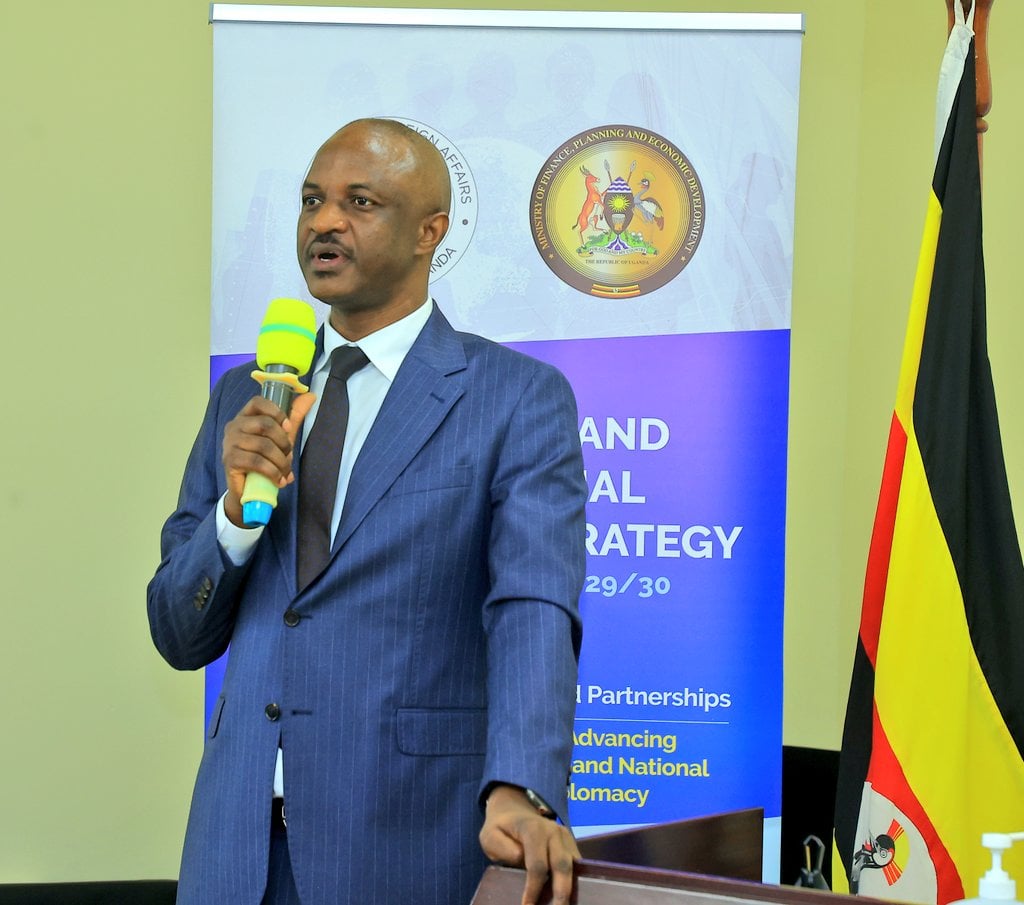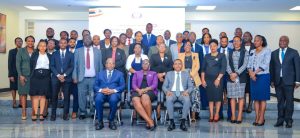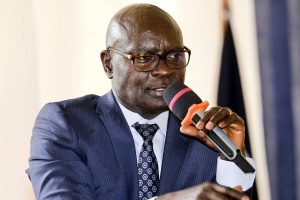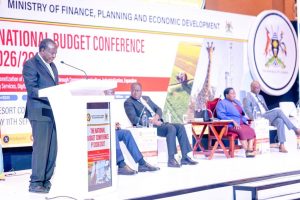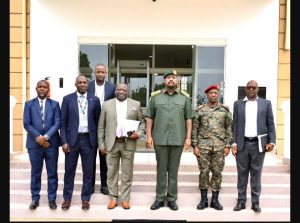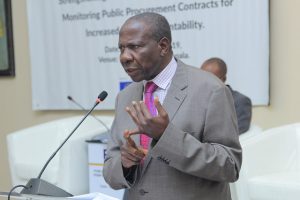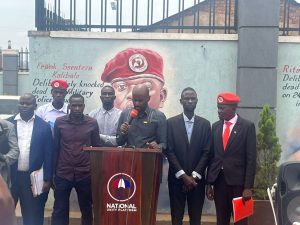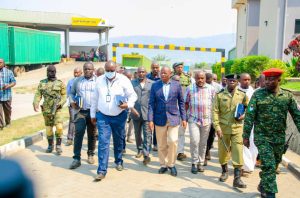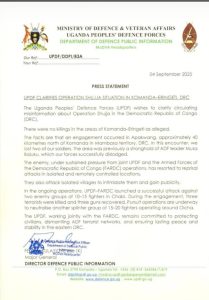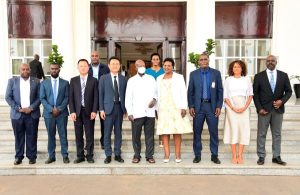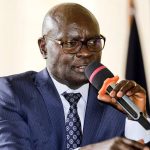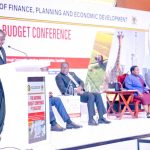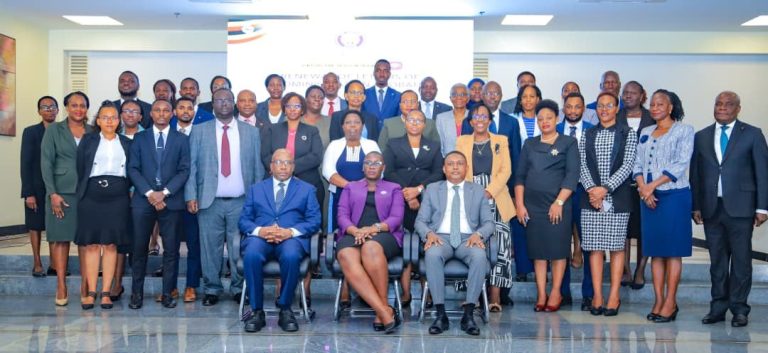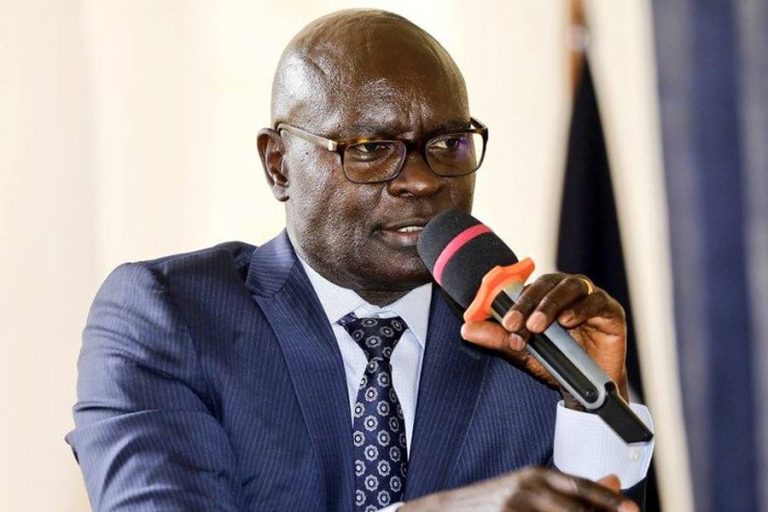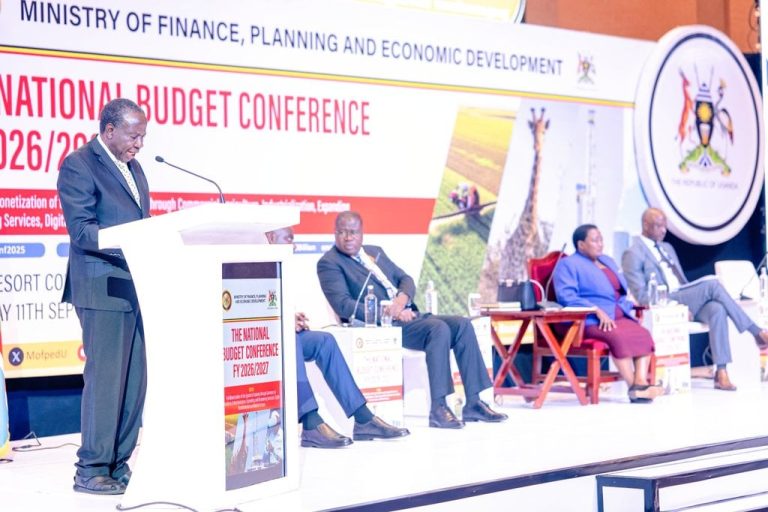The Permanent Secretary and Secretary to the Treasury (PSST), Ramathan Ggoobi, has reaffirmed the country’s strong ties with both the International Monetary Fund (IMF) and the World Bank.
Speaking at the ongoing Ambassadors’ Conference in Gulu City, Ggoobi disclosed that Uganda is in the process of negotiating a new Extended Credit Facility (ECF) programme with the IMF.
He noted that the proposed programme is expected to be submitted to the IMF Board following the 2026 general elections.
“Our relationship with the World Bank is now fully restored. We have presented new projects to the Board, and the Bank has allocated more concessional financing for a number of transformative initiatives,” Ggoobi told the gathering of diplomats.
He urged Uganda’s foreign missions to prioritise three key objectives: attracting foreign direct investment and diaspora remittances, securing export markets, and increasing tourist inflows.
“Tell everyone who cares to listen that, apart from the gifts of nature, Uganda offers peace, easy taxes, and a tolerable administration of justice,” he said, emphasising that the country remains an appealing destination for investors.
Ggoobi highlighted Uganda’s competitive investment climate, pointing out that the country offers one of the highest returns on investment in the region—averaging 14 percent—and an average return on equity of 30 percent for listed companies.
He also cited a stable macroeconomic environment, a pro-private sector government, generous incentives, and strengthened legal frameworks, including the recently amended Companies Act aimed at improving corporate governance.
He further underlined Uganda’s strategic market access through regional and continental blocs such as the East African Community (EAC), the Common Market for Eastern and Southern Africa (COMESA), and the African Continental Free Trade Area (AfCFTA), which collectively offer a market of over one billion people and a combined GDP of approximately USD 3 trillion.
On economic outlook, Ggoobi remarked that Uganda’s economy is evolving into one “more complex than expected for its income level.”
He referenced projections by Harvard University’s Growth Lab, which rank Uganda as the fastest-growing economy among 145 countries tracked through to 2035.
Earlier in the conference, Ambassador Charles Ssentongo praised the Ministry of Finance for equipping Uganda’s missions abroad to align their activities with the country’s Tenfold Growth Strategy.
Meanwhile, the Minister of State for Foreign Affairs (International Relations), Henry Okello Oryem, joined Ggoobi, Foreign Affairs Permanent Secretary Vincent Bagiire, and several ambassadors in officially launching Uganda’s Economic and Commercial Diplomacy (ECD) Strategy.
Officials said the strategy offers a comprehensive framework for Uganda’s engagement with the global economy, focusing on expanding market access, attracting transformative investments, and building international partnerships to support sustainable development.

